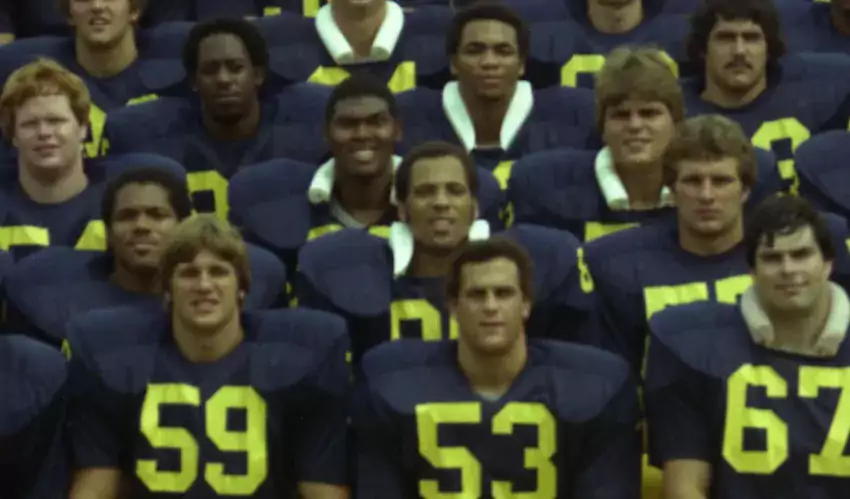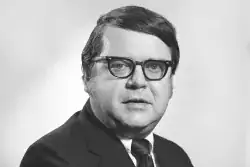robert anderson

Sponsor note. Richard Hoeg will business you up. He will file documents and draw up contracts and get you right with the government as you attempt to launch your very good business idea.
He will also not talk about Michigan football or talk about Michigan football, as is your preference. If you'd like a small business lawyer who's in the same boat you are, he's the guy to call.
I now own an ascot? In addition to our weekly discussions about the continuing Robert Anderson fallout on WTKA, I made an appearance on Stateside to talk about how it's impacting various parts of the program from the fanbase to former players and where the focus should be.
For the record. Summarizing some things said on these podcasts:
The release of the Wilmer Hale report seems to have induced these many and various press conferences, which seem designed to increase public pressure instead of saying anything that is not already in a university-commissioned document that may not be literally comprehensive but is comprehensive enough to identify a pattern of behavior and damn the culture in the football program around that time. "How much money should survivors get in compensation?" is an unanswerable question and to me it's not an interesting one. The lawyers will posture and there will be a number.
I'd rather talk about the structures in place then and the ones in place now that have brought some much-delayed comeuppance to four different serial sexual harassers.
[After THE JUMP: Power round two?]

We took down the mgopodcast version of yesterday's Roundtable, which requires some explanation. Unfortunately I'm not sure this explanation is going to satisfy everyone, particularly because Ace and I are currently not of the same mind on many of these issues. If it was just up to me I would not have pulled the podcast, but Ace felt very strongly about it and I did not. If you'd like to listen to the segment and come to your own conclusions it's still on WTKA's site.
FIRST, AN APOLOGY
Calling Michigan State the Fightin' Larry Nassars was a textbook definition of hubris and I should not have done that.
I do still think there was a major gap between the modern universities' reactions. MSU gave Lou Anna Simon a golden parachute and their regents fought tooth and nail against any sort of accountability. Michigan doesn't appear to be running the same playbook. Now, it's a lot easier for Michigan to do that because current higher-ups in the university are not directly implicated; almost everyone is dead. What they would do if they were looking at consequences for their own selves is in doubt.
[After THE JUMP: the segment]

Content warning: descriptions of sexual abuse.
Chuck Christian is dying of prostate cancer. He's 61 years old.
Christian came forward as one of Dr. Robert Anderson's many victims of sexual abuse over a year ago. By that time, he'd already outlived the terminal prognosis he received four years earlier. His story is devastating.
It was as much odd as it was alarming, then, when Christian started to find blood in his bodily fluids in the early 2000s. He begrudgingly made an appointment to get checked out. After a few tests, the doctor informed Christian that he needed a digital exam to make sure his prostate was functioning properly. Christian assumed that would mean some type of technological scan followed by images on a computer screen. Then the doctor turned to pull on a pair of gloves and lubricate his finger.
"Just hearing that glove snap, it was like, 'Oh, God, no,'" Christian said. "I just kind of freaked out. I said never again. So I left, and we never had the test done."
Christian's wife finally insisted he see a urologist and go through with a prostate exam when he began waking up to go to the bathroom "a dozen times a night" in 2016. He'd never told her why he so resisted seeking medical treatment.
In fact, at least in part because Anderson remained a respected figure within Michigan's athletic department, Christian didn't consider himself a victim of sexual abuse until a former teammate informed him of another victim's letter to Warde Manuel—and a burgeoning number of former athletes saying they'd been violated by Anderson, too.
Anderson worked at the University of Michigan from 1966 until 2003. When he died in 2008, his peers spoke fondly of him.
Former Michigan football coach Lloyd Carr, who once worked with Anderson, said people used to joke that Anderson was the poorest doctor in Ann Arbor because he worked for the Athletic Department at a lower pay rate than what the average doctor would make.
“If any of us didn’t feel well or had the flu or our kids were sick, we had the comfort of knowing that he was going to drop what he was doing,” Carr said. “He was a tremendous asset in this community.”
For four decades, Christian didn't believe he was a victim. This is the abuse he experienced.
He waited in a lobby for several minutes, along with another freshman from the football program, before going to Anderson's office alone. The short, stout doctor ran through some routine tests. Then Christian says Anderson told him to remove his shorts and bend over the exam table for a purported prostate exam.
Christian says he howled while Anderson put his fingers inside of him.
"He was a fat doctor with fat fingers. That hurt like crazy," he said. "I was screaming in pain, but I knew not to scream at him because I knew I had to do that to play. It wasn't going to do me any good to scream at him."
Christian remembers leaving the exam room and spotting the classmate who had been with him in the lobby. Christian's face prompted the other young man to ask if Anderson had done it to him, too.
"Oh, yes, what was that?" Christian said. "I feel violated."
"Me, too, man," the teammate said. "Me, too."
There's no medical reason to conduct a prostate exam on a healthy 18-year-old. Christian stayed in the football program for four years, as champions do, and saw Anderson for a physical prior to every season. He didn't mention continued abuse to an authority figure. It was just how things were done at Michigan; after all, Anderson had been a team doctor since 1967, and Christian feared he'd fail his physical and lose his scholarship if he didn't allow Anderson to violate him.
[Hit THE JUMP.]

inaction sends a message, Michigan

15